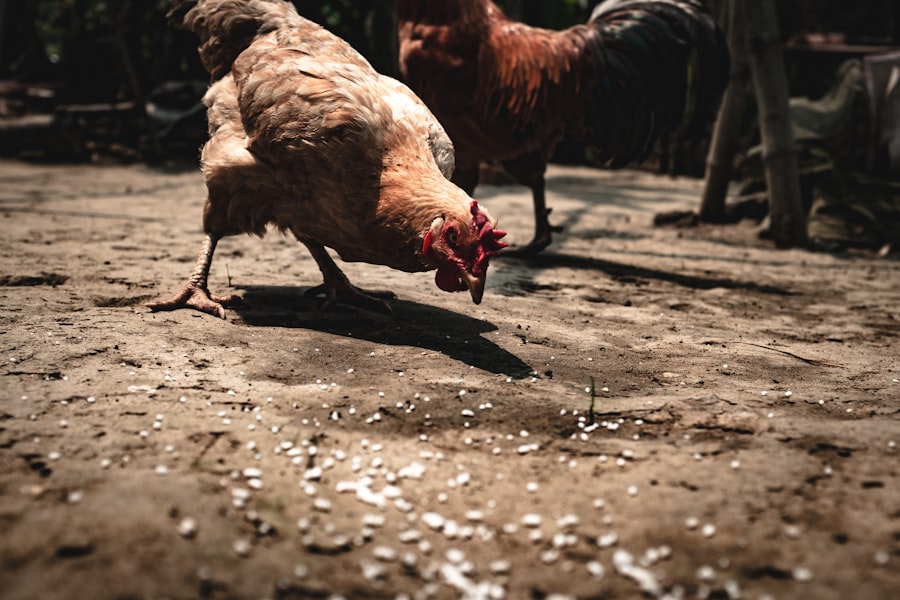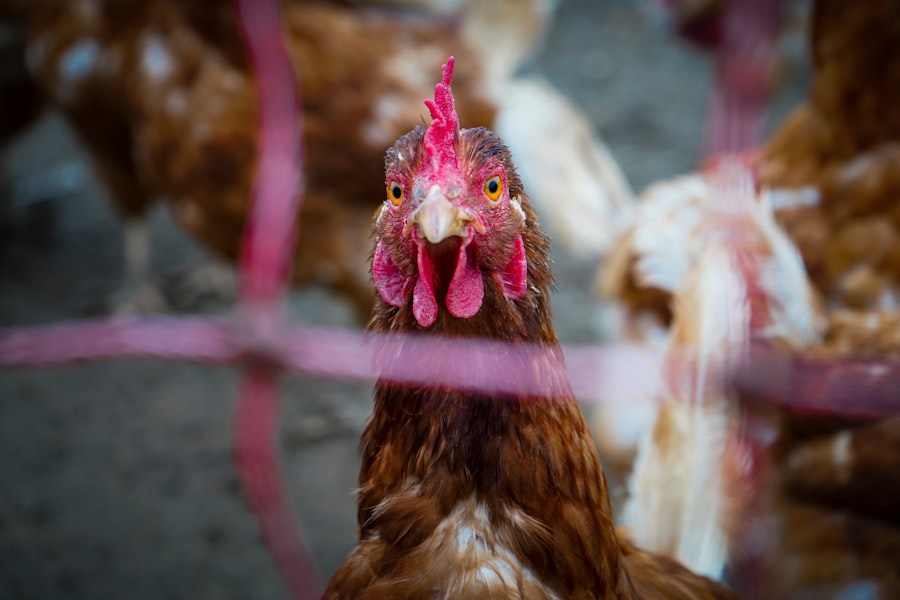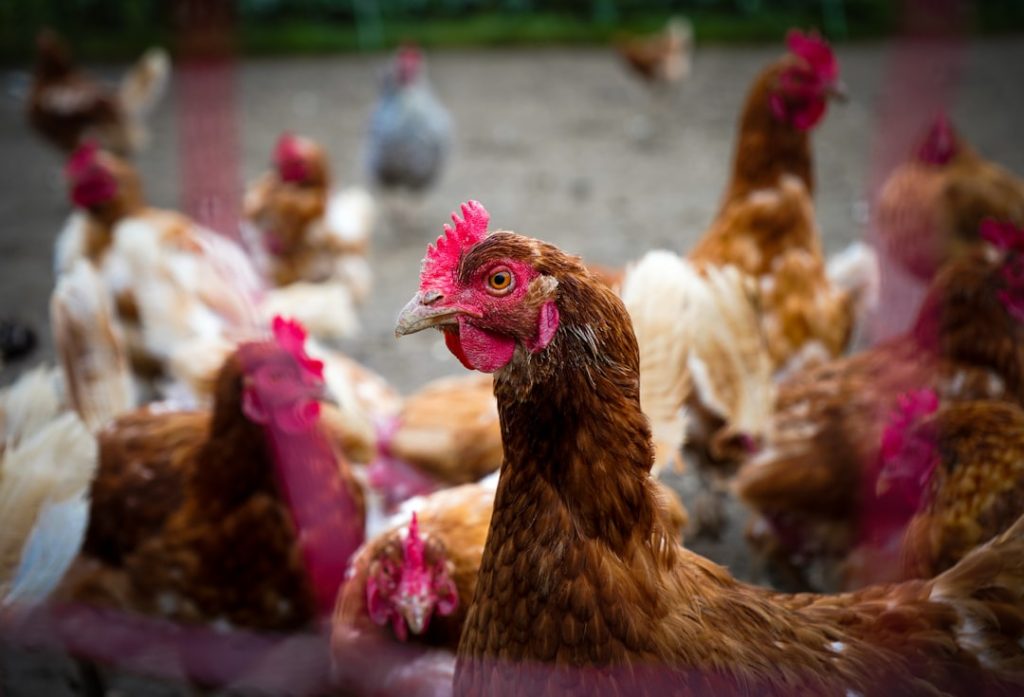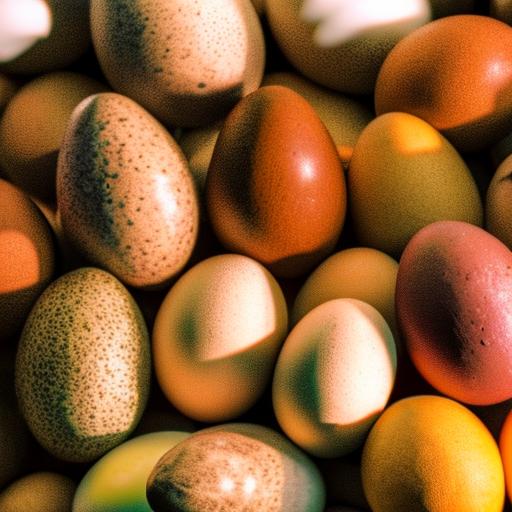Breeding chickens requires careful attention to their nutritional needs, which differ from those of non-breeding birds. Proper nutrition is essential for the health and productivity of breeding flocks, whether they are raised for meat, eggs, or both purposes. Understanding and meeting these specific dietary requirements is crucial for the success of any breeding program.
This article will examine the nutritional needs of breeding chickens, discuss various types of feed available, identify optimal feed options for breeding birds, address important considerations in feeding practices, and provide practical tips to ensure that breeding flocks receive adequate nutrition for optimal performance and well-being.
Table of Contents
- 1 Nutritional Needs of Breeding Chickens
- 2 Types of Feed for Breeding Chickens
- 3 Best Feed Options for Breeding Chickens
- 4 Considerations for Feeding Breeding Chickens
- 5 Tips for Feeding Breeding Chickens
- 6 Conclusion and Summary
- 7 FAQs
- 7.1 What is the best feed for breeding chickens?
- 7.2 What should be included in the feed for breeding chickens?
- 7.3 How often should breeding chickens be fed?
- 7.4 Are there any specific nutrients that are important for breeding chickens?
- 7.5 Can breeding chickens be fed the same diet as non-breeding chickens?
Key Takeaways
- Breeding chickens require specific nutritional needs to ensure healthy offspring and successful reproduction.
- The nutritional needs of breeding chickens include a balanced diet of protein, vitamins, and minerals.
- Types of feed for breeding chickens include commercial feeds, homemade feeds, and supplements.
- The best feed options for breeding chickens include high-quality commercial feeds and natural supplements like greens and insects.
- Considerations for feeding breeding chickens include the age and breed of the chickens, as well as the stage of the breeding cycle.
Nutritional Needs of Breeding Chickens
Nutritional Requirements for Breeding Hens
Protein is a crucial component of a breeding chicken’s diet, as it is essential for egg production and the growth of healthy chicks. Breeding hens require a higher level of protein in their diet than non-breeding hens, with a recommended protein content of around 18-20%. In addition to protein, breeding chickens also require adequate levels of vitamins and minerals, including calcium, phosphorus, and vitamin D, to support eggshell formation and the development of strong, healthy chicks.
Importance of a Well-Balanced Diet
It is important to provide breeding chickens with a well-balanced diet that meets their specific nutritional requirements in order to ensure the health and productivity of the flock.
Nutritional Requirements for Breeding Roosters
Breeding roosters also have specific nutritional needs that must be met in order to support their reproductive health. Roosters require a diet that is high in protein to support sperm production and overall reproductive function. In addition to protein, roosters also require adequate levels of vitamins and minerals, including zinc and selenium, to support fertility and overall health. Providing breeding roosters with a well-balanced diet that meets their specific nutritional requirements is essential for ensuring the success of your breeding program.
Types of Feed for Breeding Chickens

There are several types of feed available for breeding chickens, each with its own unique nutritional profile. Commercial poultry feeds are formulated to meet the specific nutritional needs of breeding chickens and are available in various forms, including pellets, crumbles, and mash. These feeds are convenient and easy to use, providing a well-balanced diet that meets the specific requirements of breeding chickens.
In addition to commercial poultry feeds, there are also organic and non-GMO options available for breeders who prefer to feed their flock with natural and sustainable ingredients. In addition to commercial poultry feeds, breeders can also supplement their flock’s diet with scratch grains, which are a mixture of whole grains such as corn, wheat, and barley. Scratch grains can be used as a treat or supplement to a breeding chicken’s diet, providing additional energy and variety.
Another option for feeding breeding chickens is to provide them with kitchen scraps and garden produce, which can be a cost-effective way to supplement their diet with fresh fruits and vegetables. It is important to ensure that any supplemental feed provided to breeding chickens is appropriate for their nutritional needs and does not contain any harmful or toxic ingredients.
Best Feed Options for Breeding Chickens
When it comes to feeding breeding chickens, there are several options available that can meet their specific nutritional needs. Commercial poultry feeds are a popular choice for breeders, as they are formulated to provide a well-balanced diet that meets the specific requirements of breeding chickens. These feeds are available in various forms, including pellets, crumbles, and mash, and are convenient and easy to use.
In addition to commercial poultry feeds, organic and non-GMO options are also available for breeders who prefer to feed their flock with natural and sustainable ingredients. Supplemental feeds such as scratch grains can also be used to provide breeding chickens with additional energy and variety in their diet. Scratch grains are a mixture of whole grains such as corn, wheat, and barley and can be used as a treat or supplement to a breeding chicken’s diet.
Another option for feeding breeding chickens is to provide them with kitchen scraps and garden produce, which can be a cost-effective way to supplement their diet with fresh fruits and vegetables. It is important to ensure that any supplemental feed provided to breeding chickens is appropriate for their nutritional needs and does not contain any harmful or toxic ingredients.
Considerations for Feeding Breeding Chickens
When feeding breeding chickens, there are several important considerations to keep in mind in order to ensure the health and productivity of the flock. It is important to provide breeding chickens with a well-balanced diet that meets their specific nutritional requirements, including adequate levels of protein, vitamins, and minerals. In addition to providing the right feed, it is also important to ensure that breeding chickens have access to clean water at all times, as water is essential for digestion, egg production, and overall health.
Another consideration when feeding breeding chickens is the need for proper management of feed storage and handling. It is important to store feed in a cool, dry place to prevent spoilage and contamination, and to ensure that feeders are kept clean and free from mold and bacteria. Additionally, it is important to monitor the body condition of breeding chickens regularly and adjust their feed intake as needed to maintain a healthy weight and condition.
Tips for Feeding Breeding Chickens

Nutritionally Balanced Diet
A well-balanced diet is essential for breeding chickens, meeting their specific nutritional requirements, including adequate levels of protein, vitamins, and minerals. This can be achieved by using commercial poultry feeds formulated for breeding chickens or by supplementing their diet with scratch grains or kitchen scraps.
Access to Clean Water
Clean water is vital for digestion, egg production, and overall health. Breeders should regularly check waterers to ensure they are clean and free from contaminants, providing access to clean water at all times.
Monitoring Body Condition
Regularly monitoring the body condition of breeding chickens is crucial to maintain a healthy weight and condition. Breeders should adjust their feed intake as needed, ensuring their flock receives the necessary nutrition to thrive. By following these tips, breeders can provide their flock with the necessary nutrients to succeed.
Conclusion and Summary
In conclusion, feeding breeding chickens requires careful attention to their specific nutritional needs in order to ensure the health and productivity of the flock. Breeding chickens have unique dietary requirements that differ from those of non-breeding birds, including higher levels of protein, vitamins, and minerals. Providing breeding chickens with a well-balanced diet that meets these specific requirements is essential for supporting reproductive health and the development of strong, healthy chicks.
There are several types of feed available for feeding breeding chickens, including commercial poultry feeds, scratch grains, and kitchen scraps. Each of these options can be used to provide breeding chickens with the nutrition they need to thrive. When feeding breeding chickens, it is important to consider factors such as proper feed storage and handling, access to clean water, and monitoring body condition in order to ensure the health and productivity of the flock.
By following these considerations and tips for feeding breeding chickens, breeders can ensure that their flock receives the nutrition they need to thrive and support a successful breeding program. With careful attention to their dietary needs, breeding chickens can thrive and produce healthy offspring for years to come.
If you’re interested in learning more about breeding chickens, you may also want to check out this article on mating season for turkeys. Understanding the mating habits of different poultry can provide valuable insights into the best practices for breeding and raising chickens.
FAQs
What is the best feed for breeding chickens?
The best feed for breeding chickens is a balanced diet that includes a high-quality layer feed, supplemented with additional protein and calcium to support egg production and overall health.
What should be included in the feed for breeding chickens?
The feed for breeding chickens should include a high-quality layer feed with at least 16% protein, as well as additional sources of protein such as mealworms, soybeans, or fish meal. It should also contain calcium to support eggshell formation, which can be provided through oyster shell or crushed eggshells.
How often should breeding chickens be fed?
Breeding chickens should have access to feed at all times to support their egg production and overall health. It is important to provide a consistent and balanced diet to ensure optimal breeding performance.
Are there any specific nutrients that are important for breeding chickens?
Yes, breeding chickens require a diet that is high in protein to support egg production, as well as calcium for eggshell formation. They also benefit from additional vitamins and minerals to support overall health and fertility.
Can breeding chickens be fed the same diet as non-breeding chickens?
While breeding chickens can be fed a similar diet to non-breeding chickens, it is important to provide additional protein and calcium to support their increased egg production. It is also important to monitor their overall health and adjust their diet as needed.
Meet Walter, the feathered-friend fanatic of Florida! Nestled in the sunshine state, Walter struts through life with his feathered companions, clucking his way to happiness. With a coop that’s fancier than a five-star hotel, he’s the Don Juan of the chicken world. When he’s not teaching his hens to do the cha-cha, you’ll find him in a heated debate with his prized rooster, Sir Clucks-a-Lot. Walter’s poultry passion is no yolk; he’s the sunny-side-up guy you never knew you needed in your flock of friends!







